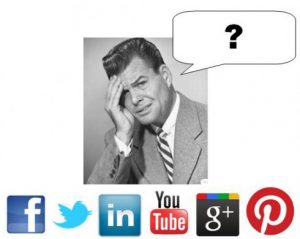One of the things that interests me, aside from sourdough biscuits, is the myth of multi-tasking. Since so many of my students think that they can write good material while playing World of Warcraft or binge-watching whatever the cool kids are binge-watching these days, I like to help them understand that they can actually do better work and spend less time doing it if they focus exclusively on that work.
That’s what drew my attention to an article at Lifehack: “The Price of Distraction is Hugely Beyond Your Imagination.” Authored by Leon Ho, the founder of the site and veteran of more than a decade of such profound offerings, this piece came to me with high promise.
It took until paragraph two before the article began waving red flags at me. Try this on:
According to McKinsey, high-skilled workers spend a staggering 28% of their working hours reading and replying to e-mail messages.1 If we learned to manage our communication technology in a more efficient manner, we could give the economy a $900 million to $1.3 trillion boost per year. [emphasis added]
That’s a pretty wide disparity, a factor of over 144,000. Think of it this way: what if the salary promised for your new job would lie between $9 and $1,300,000 dollars an hour. The higher number would represent something like 7% of U.S. gross domestic product. The low end, on the national economy scale, represents the money in Jeff Bezos’ seat cushions. Something tells me that the careful Mr. Ho has gotten his numbers wrong. Most likely it is supposed to be $900 million to $1.3 billion, but I have to wonder: if the author was this careless here, what else did he get wrong?
But in reality, he didn’t get it wrong. Ho’s source has those same figures. So we can’t blame him, right? Read what the source at the McKinsey Group had to say:
MGI’s report, The social economy: Unlocking value and productivity through social technologies, explores their potential economic impact by examining their current usage and evolving application in four commercial sectors: consumer packaged goods, retail financial services, advanced manufacturing, and professional services. These technologies, which create value by improving productivity across the value chain, could potentially contribute $900 billion to $1.3 trillion in annual value across the four sectors.
So what does this report actually say? Does it say that social media usage costs these huge amounts? Not in the least. Instead, it suggests that, if used efficiently, social media could add that much money to the economy. Methinks the Lifehack author didn’t read his source with a great deal of care.
The other sources for the Lifehack article are a mixed bag, including a Mashable article that mashes up more Mashable pieces along with a couple of more reliable sources. Why do I bash Mashable? Try this on from Ho’s source:
Are you one of the lucky employees whose job revolves around social media? Then stay logged in to Twitter, Facebook and Pinterest. If not, your social media recreation could be costing the U.S. economy $650 billion per year — or $4,452 per company.
Let’s do the math on that. That $650 billion hit to the economy costs $4,452 per company. That would suggest that there are north of 140 million companies in the United States. That’s a lot of companies, nearly one for every two citizens! A more careful source suggests that there are about 6 million companies. Again, if a source gets that sort of thing wrong, how can we trust it?
I have a couple of points here for writers of any sort:
- Use high-quality sources but also read them in a high-quality way. By the time the likes of Mashable get finished mashing, it’s likely they’ll have hopelessly mangled the truth.
- Read your own material carefully to be sure that you don’t blunder into ethos-destroying statements like the ones reviewed here.
Other than that, I love the original piece!

